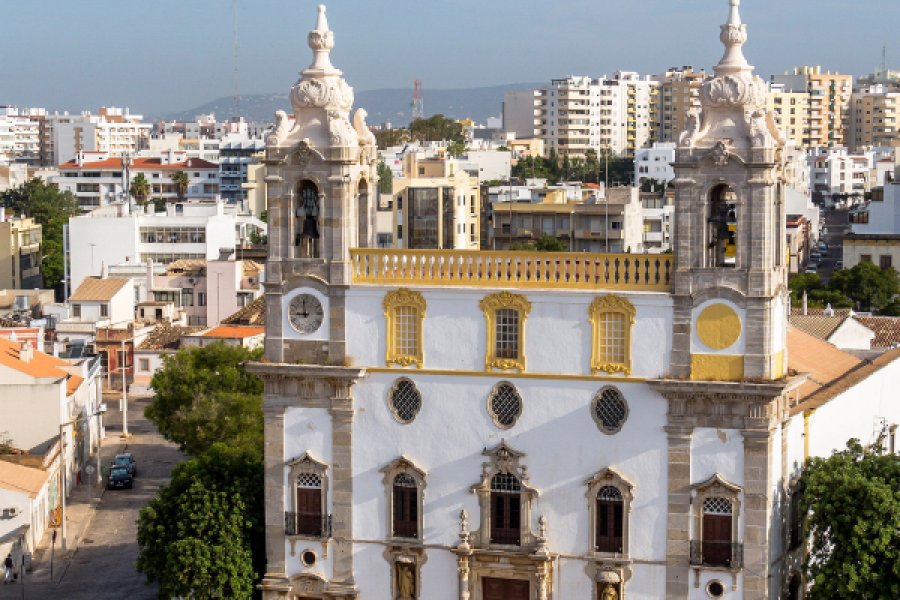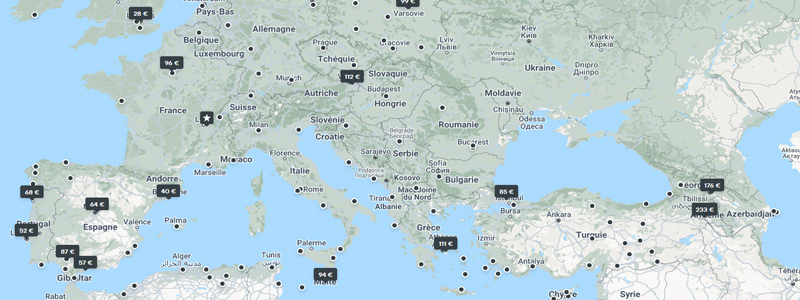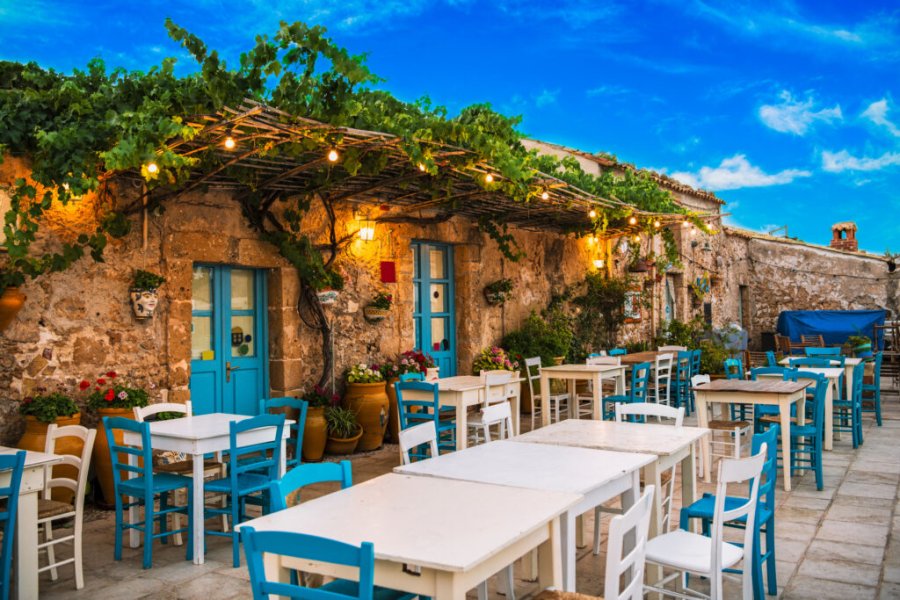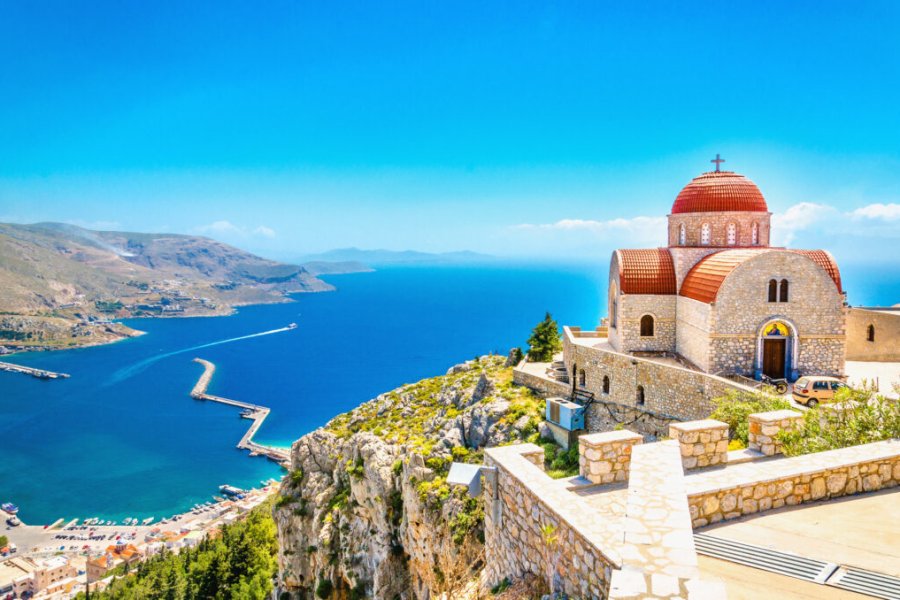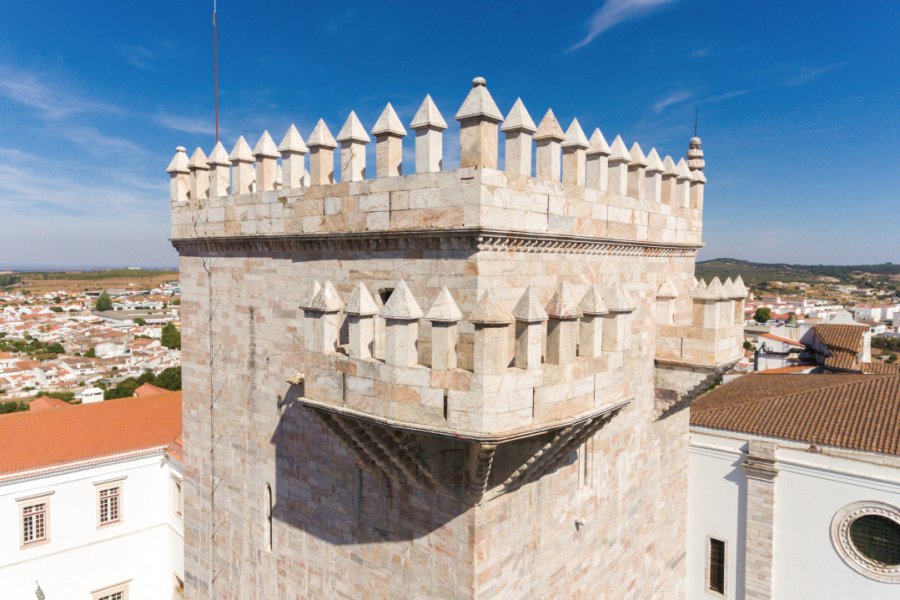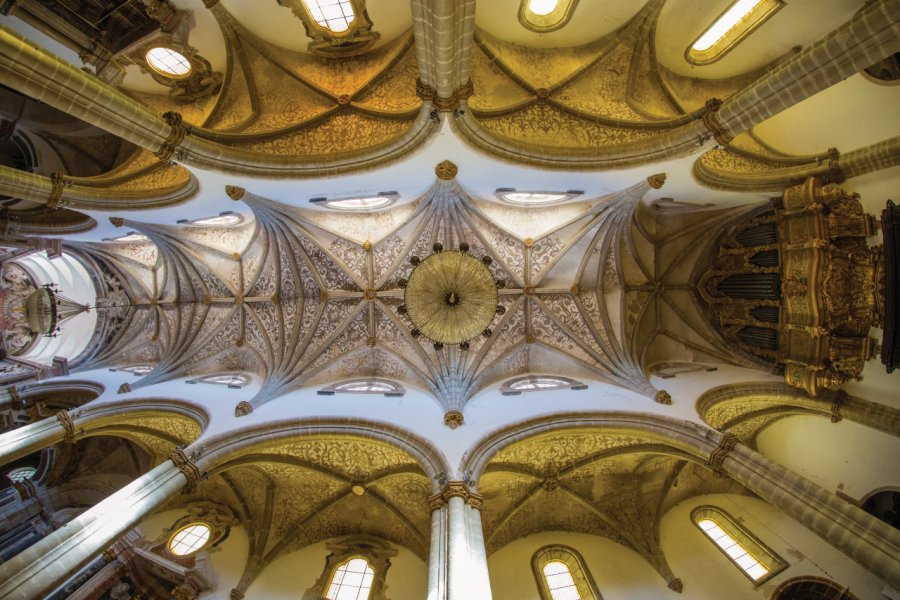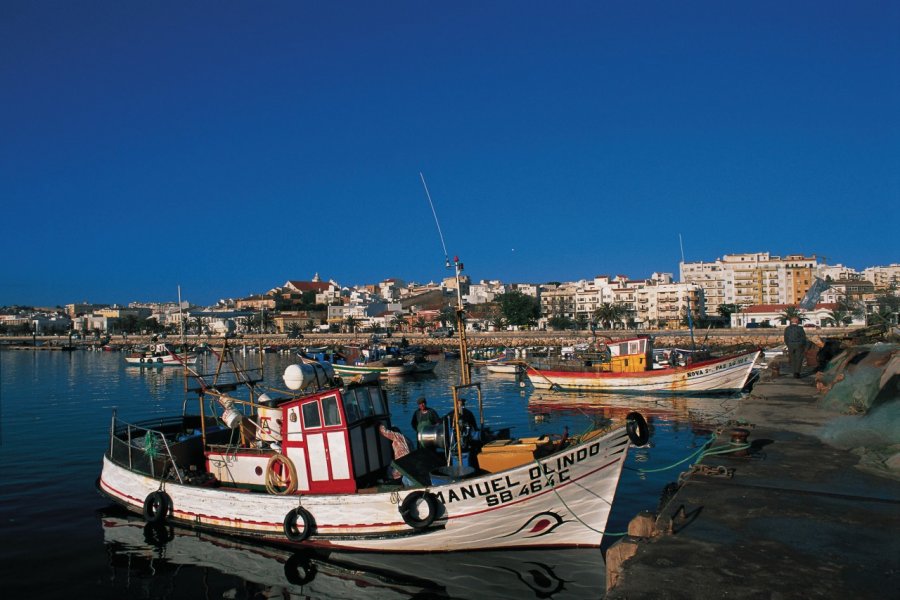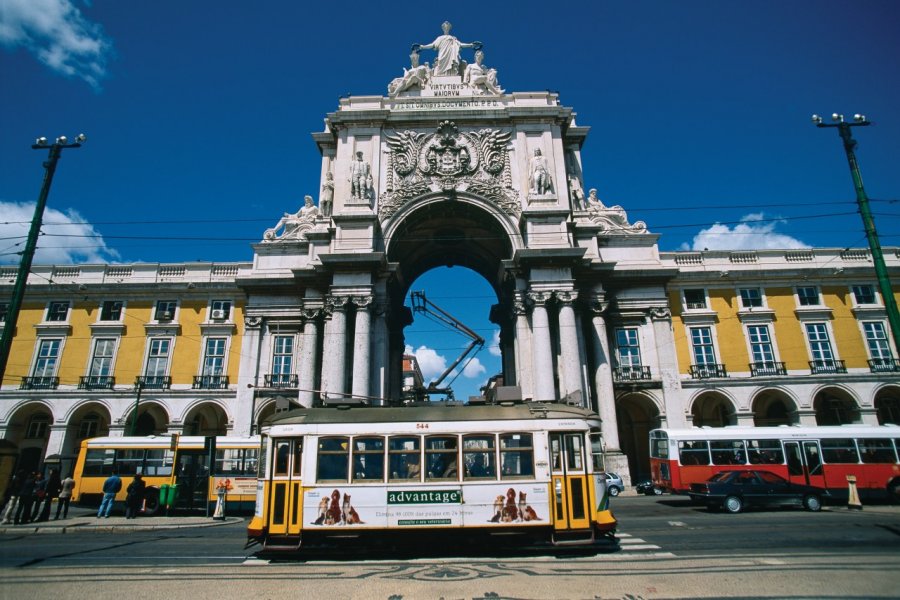Travel guide Portugal
Portugal is a land of contrasts. Between the steep valleys of the Serra d'Estrela and its snow-covered passes, the beaches and heavenly coves of the Costa Vicentina, the endless plains of the Alentejo, the sun on almost every seafront... Portugal is indeed plural. When it comes to cities, the choice is just as wide: Lisbon, the enchanting, festive and fashionable; Coimbra and its hordes of students, whispering a century-old fado; Evora, a museum city with sunny cobblestone streets in the heart of the country; Porto, with its rich architecture and famous vineyards... Expect your taste buds to travel as well, as the regional specialties are endless and following the directions in the Portugal travel guide, you're in for a treat. From the fresh fish just caught by the sailors of Nazaré to the famous 365 cod recipes and the tasty pasteis of Belém, be prepared to make some great discoveries. A city full of history like Braga will enrich your stay in Portugal. Don't hesitate to discover the country by venturing inland. The Douro Valley, for example, is a treasure trove of the country's natural beauty; it is one of the must-sees (a UNESCO World Heritage Site!) The beautiful beaches of the Azores archipelago will excite surfing fans. With your travel guide, discover this country of the Iberian Peninsula and its tourist attractions without further delay.
What to see, what to do Portugal?
-
Book an activity
-
Customized travel
- The most beautiful cities Portugal
When to go Portugal ?
If you have the choice, the best periods to spend vacations in Portugal are spring and especially June (popular festivals), the beginning of summer (many festivals) before August (the time of vacations for the Portuguese, therefore higher prices) and the beginning of autumn (before the rains). Summer is of course the great season of festivals. June is one of the most interesting months for the festivals of St. Anthony, St. John and St. Peter, which are among the main events of the month. Also worth noting are the Santiago de Setúbal fair (end of July, beginning of August), the bullfighting week in Vila Franca de Xira (June), the Almada theater festival (July), the Palmela grape harvest festival, the Seixal jazz festival (October) or the many summer music festivals.
Suggested addresses Portugal
Travel Portugal
-
Find a hotel
-
Car Rental
-
International e-SIM package
-
Find a local agency
If you arrive in Portugal by air, you will have the choice to land in Lisbon, Porto or Faro. And it is from this choice of arrival that you will establish a route. Some will choose to stay in the city for a weekend for example (for a first dive into Portuguese city life), while others, having more time, will opt for a route in a region (the Algarve or the north), or thematic (such as the discovery of archaeological sites in Portugal). Depending on your means of transport (car, train, bus, camper van...) and the length of your stay in Portugal, we have thought of ideas for itineraries that are as varied as possible. Follow or be inspired by them to establish the circuit that attracts you. Either way, we wish you a great discovery of Portugal.
And if you find it difficult to choose, no doubt you will come back another time to experience another proposed stay ...
Find unique Stay Offers with our Partners
How to go Portugal
How to go alone
There are many direct flights to Lisbon for prices ranging from one to four times the price depending on the season. Please note that the price variation depends on the airline used but, above all, on the reservation delay. In order to get good prices, it is therefore often essential to book in advance. As the country is very close, you can take advantage of it during one of your weekends. From Paris, we are only 2h30 flight from the Portuguese capital.
How to go on a tour
Tour operators specializing in trips to Portugal produce their own trips and are generally very good at giving advice because they know the region inside out. Note that their prices are often a little higher than those of generalists. Organized trips to Lisbon can be coupled with Porto and Faro. Get ready for great discoveries!
How to get around
In Portugal, the network of trains and buses is developed and cheap. To go faster, you can take domestic flights which are very fast because of the short distances. However, the best way to get around the country, even in remote areas, is to rent a car. Many families of French-Portuguese origin do not hesitate to take the road to reach Portugal. By car or motor home, the trip is similar to a road-trip, but it becomes easier to move inland afterwards. This is a great solution for a family trip. By choosing this option, you multiply the chances of discovering beautiful places like small picturesque villages, which will change you from the big cities.
Featured articles Portugal
Discover Portugal
To go to Portugal (or to be interested in it) is to discover its entire identity. Get ready to enter a country of opulent complexity where the dreams of a bold and daring 21st century often rub shoulders with the sweet nostalgia of a sometimes bland past and the echoes of a glorious history.
What is the climate in the area? What animals and plants will you have the opportunity (or the chance for the rare species) to meet on the spot? What is the place of religion in the country? What are its popular beliefs? What is the political and economic situation in Portugal after the crisis of the 2010s? Why is surfing so popular and who are the sportsmen who have challenged the huge waves of the Portuguese coast? What is the process of making port wine? What to bring back from your trip? Answers in the following pages. Enjoy your reading.
Pictures and images Portugal
The 12 keywords Portugal
1. #Alfacinhas
In Portuguese, it literally means "little lettuce", but it's also the term used to describe the natives of Lisbon. The plain surrounding Lisbon was a market-gardening area renowned for its salads... We're telling you! By contrast, Porto's inhabitants are known as tripeiros, or tripe eaters.
2. #Bacalhau
A dish eaten almost religiously by the Portuguese, it is cooked according to 1,000 recipes so that one never tires of it. This fish has been fished for several centuries in the Atlantic and Baltic off Norway and Canada, then dried and brought back to these sunny lands whose seas abound in good fish.
3. #Contracts
In the same day, you can have a drink in a bar that hasn't changed in a hundred years or in a trendy art gallery. In everyday life, the contrasts are even more striking. You can tear your hair out to find a mini-mart in town, but you can pay your bills from any ATM!
4. #Discoveries

Without the Portuguese, there would be no Brazil, South Africa or India! At the dawn of the 15th century, the Portuguese left on caravels. Madeira, the African coastline, nothing could stop them! From these discoveries, Lisbon drew its wealth, glory, but also a common epic, an artistic expression and... a past that was sometimes heavy to bear.
5. #Esta bom
Adverbial phrase that you will be asked if "is it enough? ». Don't hesitate to use it to thank the person who has done you a favour, for example by filling your tank of petrol, or by offering you an extra pastry in the morning at breakfast.
6. #Fado

This nostalgic melody is the very expression of saudade. Fado is said to derive from the songs of the troubadours of the Middle Ages, or to have been born from the songs of sailors during the time of the discoveries, impregnated with their adventures and their sentimental life. The fadista is accompanied by a classical guitar with 6 strings and the Portuguese guitar with 12 metal strings.
7. #Waters
This is the common thread of Portugal, in addition to its openness to the Atlantic Ocean. The rivers, notably the Douro, the Tagus and the Guadiana, wink at us almost everywhere. What a pleasure it is to be faced with these arms of water winding between the valleys!
8. #Hospitality
This is one of the traits of the Portuguese. Hospitality is omnipresent and is coupled with great discretion. The French are among the favorites, as most people have family in France who emigrated during the Salazar dictatorship.
9. #Medieval past

The history of Portugal is marked by barbarian and Spanish invasions. Remains of fortresses remain from this past, witnesses of a necessary protection in medieval times. As you approach the cities, you will often see the ramparts that served as protection against the enemy and their more or less well preserved fortress.
10. #Pavement
Most of the cities are located on high ground, with winding, inextricable and... paved streets. The golden rule for all travelers is to walk with good shoes, not too slippery and comfortable. Heels are to be avoided, at the risk of getting stuck in the disjointed cobblestones that make the charm of the historic centres.
11. #Romaria

These are the great feasts in honour of the patron saints of the cities. They still gather huge crowds of faithful. In Lisbon, Santo António is celebrated, a pure native of the Alfama. This saint is THE patron saint of the city. Have fun shouting "António! "in the street, and count the number of men who turn around!
12. #Saudade
It is an almost untranslatable word in French. Like a nostalgia for the glorious times of great discoveries, a kind of submission to fate, to the difficulties of life, a hope for a return to better days. It is the absence, the regret of what could have been or what has been, the resignation to what can never come..
You are from here, if...
You say good morning, good afternoon and good evening and not just "ola". Even in everyday language, the Portuguese use this way of greeting. From noon you can already say "boa tarde".
Soccer is in your blood. You don't miss any game of your favorite club (FC Porto or Benfica) and you like to "tease" your "enemies". All of this in a bar with the game on or at home with friends.
You walk along the road, respecting the most important safety rule: in the opposite direction of the cars and that...
... to cross the road, you don't think to look for a crosswalk.
You can sit for hours in front of a café or at home watching life go by and nature come alive.
At noon you have your home-made or bought lunch at the waterfront.
You can't miss a single episode of your favorite telenovela, a soap opera with twists and turns as varied as its characters are cartoonish.

